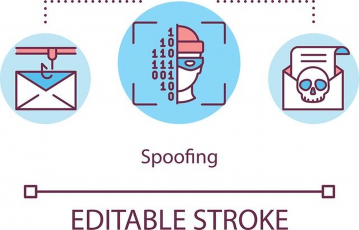Privacy in the brave new digital world wasn’t always so important. The privacy activists who tried to raise their voices a couple of decades ago were few and far between. They didn’t even get much attention from the mainstream. But then, Edward Snowden’s revelations surfaced online, drawing unprecedented attention to online privacy trends and best practices.
Eventually, the recurrent events of security breaches, data abuses by businesses, and government surveillance, created mainstream interest in digital privacy. Likewise, the subject “privacy,” activists, and related news gained momentum and credibility.
Interestingly, the year 2021 witnessed the most progress in this regard (so far). Now, the keenest observers also expect better internet privacy in 2022.
Online privacy trends for 2022 – The quick list
- More false promises. Expect more businesses to trick you with huge privacy promises sans appropriate measures.
- Farewell to cookies. Browsers will ultimately put an end to cookie tracking.
- Expect biometrics everywhere. That’s because biometric verification is the easiest and (by far) safest authentication method for every user.
- Privacy by design. This old notion is finally becoming mainstream as more and more companies respect their users’ privacy.
- Artificial Intelligence fuels Big Brother. Expect advanced AI-powered workplace monitoring tools to replace the existing employee tracking software.
- Increasing regulations. Followed by Europe’s GDPR, California’s CCPA and many more legislations are coming up to regulate online privacy issues.
- Awareness and growing fines. More fines will automatically push businesses to comply with privacy regulations.
- Education and training. Apart from training employees, businesses will not also try to educate customers regarding online privacy – something that the world already started witnessing in 2021.
- Third-party risk management. Companies can no more put the burden of privacy abuses on third parties. Such risk management will ensure better privacy.
Specifically, 2021 was a good year for privacy, considering the various noteworthy measures that got in place globally. For instance, new regulations are in the works in Japan and Australia. Similarly, Saudi Arabia and China, not exactly the world’s privacy paladins, signed some new privacy bills into law. (That’s indeed significant progress as it creates a legal framework for privacy issues instead of leaving everything to the authorities’ will).
But governments and lawmakers do not make up the whole story. Typically, privacy legislation is only as good as the tech giants’ implementation at the software and hardware level. Fortunately, there’s progress on this front as well. For example, Apple and others are making their software more privacy-friendly.
Whenever a new thing gains traction at the mainstream level, an inevitable market comes along to assuage the people’s worries. So yes, there is a privacy protection market as well, and it’s set to be higher than ever.
But what does it all mean at the practical level? How will it affect you directly? First, let’s see the outlook for privacy for the next year and see what we could expect.
1. False privacy promises will be on the rise
The digital world comprises many different industries. They all know that their consumers’ awareness of privacy has risen steadily in recent years. They also know that that awareness has also created some discontent regarding the data collectors and advertising giants.
So, one of the most expected digital life trends for 2022 is for people to become more aware of privacy and demand an unprecedented level of transparency for the industry. Manufacturers and service providers ought to deal with their discontent can reflect in financial terms for the sectors. Consequently, many carriers will likely offer higher degrees of transparency to their end-users.
One significant step in that direction is Apple’s iOS 15.2. It enables users to find the apps tracking them and the data they require.
But can we expect everybody else to follow Apple’s lead? That’s unlikely. Other actors may keep collecting user information. But they will learn new tricks to obfuscate their activity, thus annihilating transparency rather than improving it.
As that trend grows, it will be critical for concerned users to remain critical about the privacy that some vendors offer because they could mislead.
2. Farewell to cookies
Another noteworthy data privacy forecast for 2022 is the end of cookies. Yes, the “cookie,” that ubiquitous spy that lingers hidden at the heart of any browser we use, could go away for good.
But are cookies going away because the software providers are concerned for privacy? Not really!
Instead, some structural changes are underway within the advertising industry. Google and Apple have been working on new ways to do the cookie job without cookies for a while, which they may finally deploy this year.
Additionally, the trend among the major browsers is to end the support for third-party tracking.
Google Chrome will keep cookies around until 2023. But other significant browsers phased them out already. So the writing is on the wall. The old way of channeling information about potential online consumers is on the way out.
As cookies become a thing of the past, data-driven businesses will start a race (maybe even a war) to find new methods to farm user data.
And how helpful will the disappearance of cookies be for privacy? It remains to be seen.
Most experts expect that as new privacy regulations become enforced and closed-off mobile platforms keep expanding in the digital universe, invasive technology won’t simply disappear. Instead, it will adapt to suit the new realities and online privacy trends.
3. Expect biometrics everywhere in 2022
Identity authentication is one of the central facts in the new digital economy. Password authentication has been around for decades. More recently, the rise of mobile devices gave way to an improvement: two-factor authentication.
However, both prevalent authentication methods are essentially outdated and offer cybercriminals endless opportunities for abuse and exploits.
Nonetheless, unlike other technologies that can address a specific segment, authentication has to work for everybody. Hence, the process must be accessible for experienced and naive internet users alike.
Currently, things like “authentication apps” ensure better identity verification. But they are still new to the market and have failed to acquire a “killer app” status. These apps can help only if this technology becomes the industry’s standard.
But before that happens, there will be an app war, blurring the immediate necessity for a universal yet fool-proof authentication method.
However, the global internet environment seems ready to adopt a single, maybe universal, form of ID authentication to use in every instance. For this, biometric data is the most obvious approach. Hence, it’s among the expected 2022 online privacy trends.
Things like fingerprints, retinal scans, or facial recognition have matured enough for deployment. Moreover, they are convenient because they don’t require memorizing anything and are challenging to reproduce.
But is biometric authentication safe to adopt? The jury is still out.
For a moment, recall how many corporate data breaches have happened over the years. Then imagine how a similar breach can happen in the future. It would potentially include a massive batch of biometric information that can unlock online accounts or provide access to other assets. And, perhaps, no one could reset that breached information ever. So this security issue still needs attention from the community.
Nonetheless, biometric verification still seems a better authentication strategy by far.
4. Privacy by design: A trend for 2022
Online privacy is becoming a core value in the current digital scenario, making steady progress in the recent trends. But privacy was not always a concern for those who develop the technologies we use all the time.
Yes, some of them needed authentication initially. But even in those cases, these technologies adopted privacy as an artificial add-on instead of fitting it organically into that piece of hardware or software. Nonetheless, that could change in 2022.
Tech companies are now aware of the growing concern about privacy among their clients and users. Therefore, they are starting to adopt privacy-by-design as a principle.
Of course, that doesn’t mean that the leaders will keep talking about privacy. But, in 2022, you may notice how all those words translate into actions, finally realizing the concept of “privacy-by-design.”
Privacy concerns may be new as a popular thing, but they’ve always had adepts. Privacy-by-design is a notion that we can track to the 1970s.
One of the ideas that could represent this trend is “zero-copy integration.”
Imagine a world where you can’t copy any file or piece of data you need for work. Instead, you can only use the original item, read it, but never reproduce it. This approach to data management comes from designing a system in which data integration includes meaningful access policies and controls. It’s not as ideal or utopian as you could think. Nevertheless, it’s already set to become the national standard in Canada. If the idea sticks there, it could gain traction everywhere else too.
The case of “zero-copy integration” is representative of the whole privacy-by-design philosophy. The approach doesn’t start with any given technology or process. Instead, it defines clearly what access and control should mean for everybody.
5. Artificial Intelligence fuels Big Brother in the workplace
Workplace surveillance tools (commonly known as “bossware“) are exploding. So far, these are passive technologies that are little more than glorified ways to keep logs. But that could change.
Many security experts expect Artificial Intelligence (AI) to be the next step forward in monitoring worker performance. They even believe it to happen over the next 12 months.
When that happens, the records won’t be just about the time you arrived or left, if your coffee break was three minutes too long, and those trivialities. Instead, your biometrics, overall behavior, signs of emotional distress, and many more elements will come into the mix. That will surely be a huge problem, at least in the beginning.
Leaving aside the additional stress of privacy that such online surveillance trends could bring into an employee’s mindset, one must consider that AI and algorithmics are still in infancy for such applications. They’re far from perfect, and before they can become helpful, they require the digital world to undergo a period of adaptation and learning all about it.
Plus, such AI-based tracking would bring lots of complications. For instance, it’s already been proven how AI gives different interpretations to behaviors in minority groups in other AI environments.
Another issue will be to define the “ethical use” of this technology and follow those ethical standards.
6. Increasing regulations
The introduction of the General Data Protection Regulation (GDPR) in Europe hailed the beginning of a new era in online privacy trends. Consumers and data subjects appeared pleased with how GDPR pushed governments to refresh their internet privacy laws.
GDPR has placed Europe at the vanguard of regulations regarding collecting and using personal data.
GDPR is a good start, for sure. But it’s only the beginning and remains theoretical in many ways. Online privacy breaches are still there, and the fight keeps going. But the importance of GDPR in the European legislative systems cannot be overstated.
The closest counterpart to GDPR outside Europe is California’s CCPA from 2020, among all other online privacy laws in the US. It’s inspired in many ways by GDPR.
CCPA specifies the new obligations that companies doing business in California must face. It has also empowered them to have more control over their personal data.
In the year to come, we will see how these two legislations continue to have their ramifications expand across society.
7. Awareness and growing fines
Data protection laws are popping up almost in every jurisdiction in the world. Enforcing them, however, needs a supervisory authority that is up to the task. But unfortunately, most of them haven’t been able to cope with the demand for their services with the same velocity. As a result, the fines for GDPR violations in Europe alone have risen to almost 257 million EUR.
So the new laws and the agencies enforcing them will become a concern for the world’s companies in the upcoming years.
As the executives of Europe, California, and the rest of the world begin to understand what GDPR and CCPA mean to them regarding fines, reputational damage, and privacy risks, they will try to adapt.
8. Education and training
Data privacy and protection are constantly in motion. Companies slowly realize that they need to build their customers’ trust. One way to do this is to educate them about collecting their personal data, why, and how you are using it.
Thus, among all the 2022 internet privacy predictions, what presently looks obvious is that the companies may develop a more trusted relationship with their customers with increased transparency regarding data privacy.
For this, companies need to learn how to do this better. Customers need to understand they have rights, and they can and must fight for them. As part of this process, more programs and courses may surface online to help educate the privacy professionals that the whole world desperately needs.
9. Third-party risk management
We will see a big spotlight on third-party risk management.
Because legislations such as the GDPR spell out the current obligations and mandate contractual protections with data processors, companies cannot relax their standards. Instead, they must do their due diligence on the third parties they do business with. And yes, they also need to protect themselves from future problems.
Do not forget that third-party risks are at the heart of many of the most current compliance programs.
Read also: The Best Internet Privacy Tools for 2022
Wrapping up
Privacy is a relatively new movement in the digital world. But it’s strong and growing exponentially.
In the last year, we saw unprecedented growth in privacy awareness among digital users and on the industry’s part to address it. Consequently, the digital life trends for 2022 can only be even more significant.
All the future trends described above have come to life to address problems in privacy. However, things won’t stop there. New solutions will create new scenarios that will come with new privacy issues that will, in turn, need awareness and work.
However, the great event to underlie is not in a single technology or a single measure but in the overall trend.
Users are becoming aware of their privacy rights and finding ways to fight for them. The industry acknowledges this new concern in its client base and takes steps to give users what they ask. This trend guarantees that the world will become a better place to stay private — slowly but surely.






